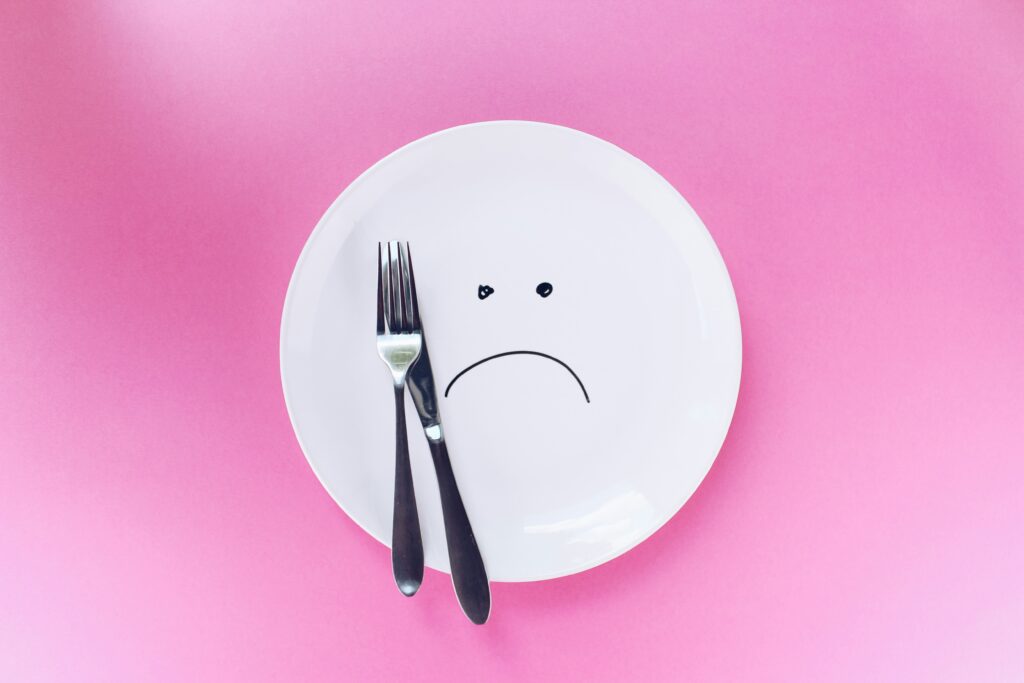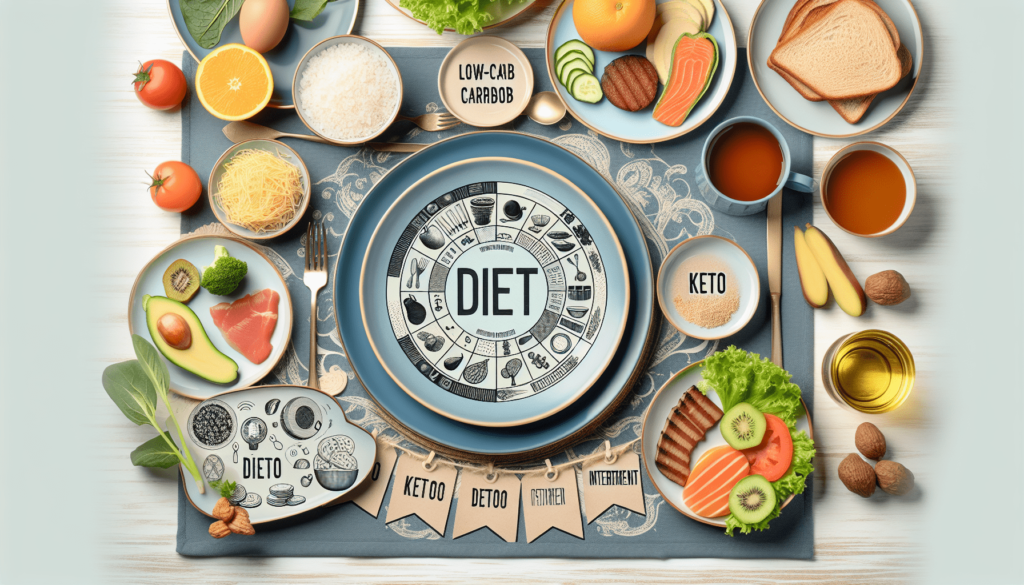Are you on a quest to shed those extra pounds? If so, you’re probably wondering what the best diet is for effective and sustainable weight loss. Well, look no further! In this article, we will explore the question that has been on everyone’s mind: “What is the Best Diet for Weight Loss?” With so many fad diets and conflicting information out there, it can be overwhelming to know where to start. But fear not, as we will provide a comprehensive overview of the most popular diets and their effectiveness in helping you reach your weight loss goals. So sit back, relax, and get ready to discover the ultimate diet solution!

Understanding Weight Loss
Losing weight can be a challenging journey, but with the right knowledge and approach, it is definitely achievable. To embark on this journey, it is important to have a clear understanding of the fundamental principles of weight loss.
Calorie Deficit
One of the key components of weight loss is creating a calorie deficit. This means consuming fewer calories than your body needs to maintain its current weight. By creating this deficit, your body is forced to tap into its stored fat reserves for energy, resulting in weight loss.
To create a calorie deficit, you can either reduce your calorie intake through your diet or increase your calorie expenditure through exercise. Many successful weight loss strategies combine both methods to maximize results.
Types of Diets
There are countless diets out there claiming to be the ultimate solution for weight loss. However, it is important to note that there is no one-size-fits-all approach. Different diets work for different individuals, and it is vital to find a diet that suits your preferences and dietary requirements.
Some popular diets for weight loss include the ketogenic diet, intermittent fasting, and the Mediterranean diet. These diets have gained popularity due to their potential to facilitate weight loss when followed correctly.
The Role of Exercise
While your diet plays a significant role in weight loss, incorporating regular exercise into your routine is equally important. Exercise not only helps to burn calories, but it also improves cardiovascular health, boosts metabolism, and strengthens muscles.
Including a combination of cardiovascular exercises, such as brisk walking or cycling, and strength training exercises, such as weightlifting or yoga, in your routine can help you achieve your weight loss goals.
Popular Diets for Weight Loss
With so many diets to choose from, it can be overwhelming to determine which one is best suited for your weight loss journey. Here are three popular diets that have been widely discussed for their potential weight loss benefits:
Ketogenic Diet
The ketogenic diet is a low-carbohydrate, high-fat diet that aims to switch your body into a state of ketosis. In this state, your body burns fat for fuel instead of carbohydrates. The diet typically involves consuming foods rich in healthy fats, moderate amounts of protein, and minimal carbohydrates.
Many individuals have reported success with the ketogenic diet, as it promotes weight loss by reducing hunger, lowering insulin levels, and increasing fat burning. However, it is important to note that the diet may not be suitable for everyone, especially those with certain medical conditions or dietary restrictions.
Intermittent Fasting
Intermittent fasting is an eating pattern that involves alternating periods of fasting and eating. There are several different methods of intermittent fasting, including the 16/8 method (fasting for 16 hours and having an 8-hour eating window) and the 5:2 diet (eating normally for five days and significantly reducing calorie intake for two days).
Intermittent fasting has gained popularity due to its potential to promote weight loss by reducing calorie intake and improving insulin sensitivity. However, it is important to approach intermittent fasting with caution and consult with a healthcare professional if you have any underlying health issues.
The Mediterranean Diet
The Mediterranean diet is inspired by the traditional eating patterns of Mediterranean countries, such as Greece and Italy. It emphasizes the consumption of fruits, vegetables, whole grains, legumes, lean proteins, and healthy fats, while limiting processed foods, red meat, and added sugars.
This diet has been associated with numerous health benefits, including weight loss, reduced risk of heart disease, and improved brain health. The Mediterranean diet is often praised for its balanced approach to nutrition and its emphasis on whole, minimally processed foods.
Choosing the Right Diet for You
When it comes to choosing the right diet for weight loss, it is essential to consider your individual goals, preferences, and lifestyle. Here are some factors to consider when selecting a diet:
Consider Your Goals
Start by defining your weight loss goals. Are you looking to lose a significant amount of weight or are you aiming for a more moderate weight loss? Understanding your goals will help you identify a diet that aligns with your objectives.
Additionally, consider other factors such as your dietary preferences, food intolerances or allergies, and any medical conditions that may require specific dietary considerations. It is crucial to select a diet that you can comfortably adhere to in the long term.
Individual Differences
Keep in mind that what works for one person may not work for another. Each individual is unique, and our bodies respond differently to various types of diets. Experiment with different approaches to find out what works best for you.
Consider consulting with a registered dietitian nutritionist who can provide personalized guidance based on your individual needs and help you navigate through the overwhelming amount of dietary information available.
Sustainable Lifestyle Changes
Sustainability is key when it comes to long-term weight loss success. It is important to choose a diet that you can maintain over time, rather than opting for a quick-fix solution. Look for approaches that promote balanced eating habits and can easily be incorporated into your daily routine.
Remember, weight loss is not just about reaching a certain number on the scale. It is about making lasting changes to your lifestyle that promote overall health and well-being.
The Importance of a Balanced Diet
While different diets may emphasize varying macronutrient ratios or specific food groups, the common underlying principle is the importance of a balanced diet. A balanced diet provides your body with the necessary nutrients to support its functions, promote weight loss, and maintain overall health.
Incorporating Macronutrients
Macronutrients are the essential nutrients that provide energy to the body and are required in large quantities. They include carbohydrates, proteins, and fats.
Carbohydrates are the primary source of energy for the body and can be found in foods such as whole grains, fruits, and vegetables. Proteins are crucial for tissue repair and growth and can be obtained from sources like lean meats, fish, legumes, and dairy products. Fats are important for hormone production, insulation, and overall cellular function and can be found in foods like avocados, nuts, and olive oil.
A balanced diet should include a variety of these macronutrients in appropriate portions to ensure optimal nutrition and promote weight loss.
Understanding Portion Control
Portion control plays a significant role in weight loss. Even if you are consuming nutritious foods, eating excessive portions can hinder your progress. It is important to become mindful of your portion sizes and practice portion control.
Using smaller plates or bowls, measuring your servings, and paying attention to your body’s hunger and fullness cues can help you maintain appropriate portion sizes. Additionally, focusing on nutrient-dense foods that are low in calories can help you feel satisfied while still supporting weight loss.
Importance of Micronutrients
Micronutrients, such as vitamins and minerals, are essential for the body’s proper functioning and overall health. While macronutrients provide energy, micronutrients are involved in various biological processes, including metabolism, immune function, and tissue repair.
Consuming a wide variety of fruits, vegetables, whole grains, lean proteins, and healthy fats ensures an adequate intake of these micronutrients. Incorporating a wide array of colorful foods into your diet can help you obtain the necessary vitamins and minerals for optimal health and weight loss.

Key Factors for Successful Weight Loss
Successful weight loss goes beyond simply following a specific diet plan. It requires incorporating key factors into your lifestyle that promote sustainable weight loss and long-term success.
Behavioral Changes
Changing the way you think about food and your relationship with it is crucial for long-term weight loss success. Identifying and addressing any emotional or psychological factors that contribute to overeating or unhealthy eating habits can help you develop a healthier mindset.
Seeking support from a therapist or a support group can be beneficial in fostering positive behavioral changes and maintaining motivation throughout your weight loss journey.
Lifestyle Modification
Weight loss is not just about what you eat, but also how you live your life. Incorporating healthy lifestyle habits, such as getting enough sleep, managing stress, staying hydrated, and limiting alcohol consumption, can greatly impact your weight loss efforts.
Making gradual changes to your lifestyle that you can sustain over time is key to achieving and maintaining your weight loss goals.
Social Support
Having a strong support system in place is invaluable during your weight loss journey. Surround yourself with friends, family, or a community of individuals who share similar goals and can provide encouragement, accountability, and practical advice.
Consider joining a weight loss program, participating in online support groups, or seeking the guidance of a registered dietitian nutritionist to ensure you have the support and guidance needed for successful weight loss.
Controversies and Myths
The world of weight loss is filled with controversies and myths that can often make it difficult to decipher fact from fiction. Here are a few common controversies and myths you should be aware of:
Low Carb vs. Low Fat
The debate between low-carb and low-fat diets has been ongoing for years. Some studies suggest that low-carb diets can lead to greater weight loss and improved metabolic health, while others tout the benefits of low-fat diets.
The truth is, both approaches can be effective for weight loss, as long as they create a calorie deficit. Ultimately, it comes down to personal preference and what works for your body. It is important to focus on the overall quality of the diet and ensure it is sustainable in the long run.
Effectiveness of Detox Diets
The idea of detoxing the body through strict diets or juice cleanses has gained popularity in recent years. While these methods may lead to temporary weight loss, they are not sustainable or effective in the long term.
Our bodies naturally detoxify themselves through organs like the liver and kidneys. Instead of relying on drastic measures, focus on adopting a balanced diet that supports the body’s natural detoxification processes.
The Role of Supplements
Supplements are often marketed as magic solutions for weight loss. While some supplements may have minor benefits, they are not a substitute for a healthy diet and lifestyle.
It is important to consult with a healthcare professional before incorporating any supplements into your routine, as they can interact with medications or have potential side effects.

Developing Healthy Eating Habits
In addition to choosing the right diet, developing healthy eating habits is crucial for successful weight loss. Here are a few strategies to help you establish a positive relationship with food:
Mindful Eating
Mindful eating involves paying full attention to the experience of eating, including the taste, texture, and sensations associated with each bite. By slowing down and savoring your meals, you are more likely to feel satisfied with smaller portions and make conscious choices about what you eat.
Practicing mindful eating also helps you recognize and respond to your body’s hunger and fullness cues, reducing the likelihood of overeating or emotional eating.
Food Journaling
Keeping a food journal can be a helpful tool in monitoring your food intake, identifying patterns, and holding yourself accountable. Write down everything you eat and drink throughout the day, including portion sizes and any emotions or circumstances surrounding your meals.
Reviewing your food journal can provide valuable insights into your eating habits and help you make more informed choices moving forward.
Meal Planning
Meal planning involves prepping and planning your meals in advance, ensuring that you have healthy options readily available throughout the week. This not only saves time and money but also prevents impulsive, unhealthy food choices.
When meal planning, aim to incorporate a variety of nutrient-dense foods, including fruits, vegetables, lean proteins, and whole grains. This helps to ensure that you are meeting your nutritional needs while promoting weight loss.
Long-Term Weight Maintenance
Sustainable weight loss is not just about reaching your desired weight; it is about maintaining it in the long term. Here are some strategies to help you transition into the maintenance phase and establish healthy habits for life:
Transitioning to Maintenance Phase
As you approach your target weight, gradually increase your calorie intake to match your body’s energy needs. This transition should be done mindfully and with the guidance of a healthcare professional or registered dietitian nutritionist.
Focus on continuing the healthy eating habits you developed during your weight loss journey and make adjustments as needed to maintain your weight.
Regular Physical Activity
Physical activity is key to maintaining weight loss and overall health. Aim to engage in regular exercise, incorporating both cardiovascular exercises to strengthen your heart and lungs and strength training exercises to build muscle.
Find activities that you enjoy, as this will increase your chances of sticking with them long term. Whether it’s dancing, hiking, or cycling, make physical activity a part of your daily routine.
Tracking Progress
Monitoring your progress can help you stay motivated and accountable. This can be done through regular weigh-ins, body measurements, or by tracking your activity levels and food intake.
Remember that weight is just one metric of progress, and it is important to focus on other indicators of health and well-being, such as increased energy levels, improved fitness, and better overall quality of life.

Consultation with Healthcare Professionals
If you are struggling with weight loss or have specific concerns, it is advisable to seek guidance from healthcare professionals who specialize in this field. Here are a few professionals who can provide valuable support:
Registered Dietitian Nutritionist
Registered dietitian nutritionists are trained professionals who can provide personalized nutrition guidance based on your unique needs and goals. They can help you develop a customized meal plan, address any nutrient deficiencies, and provide ongoing support and accountability.
Weight Loss Programs
There are various weight loss programs available that provide structured approaches to weight loss. These programs often include a combination of diet and exercise plans, educational resources, and support from professionals or group members.
Before choosing a weight loss program, carefully evaluate its methods, credibility, and potential long-term sustainability.
Medical Advice
In some cases, underlying medical conditions or medications may impact your ability to lose weight or require specific dietary considerations. If you have concerns about your health or suspect medical reasons may be hindering your weight loss efforts, it is important to consult a healthcare professional for a comprehensive evaluation and guidance.
Conclusion
Understanding weight loss involves recognizing the importance of creating a calorie deficit, exploring various types of diets, incorporating exercise, and embracing a balanced approach to eating. Choosing the right diet for your needs involves considering your goals, individual differences, and the sustainability of lifestyle changes. A balanced diet that includes macronutrients, portion control, and micronutrients is essential for weight loss. Successful weight loss depends on behavioral changes, lifestyle modification, and social support. It is important to be aware of controversies and myths surrounding diets, develop healthy eating habits through mindful eating, food journaling, and meal planning, and prioritize long-term weight maintenance through lifestyle changes and regular physical activity. When in doubt, seeking the guidance of healthcare professionals can provide valuable support and personalized advice on your weight loss journey. Remember, weight loss is not just about the number on the scale, but also about achieving overall health and well-being.

